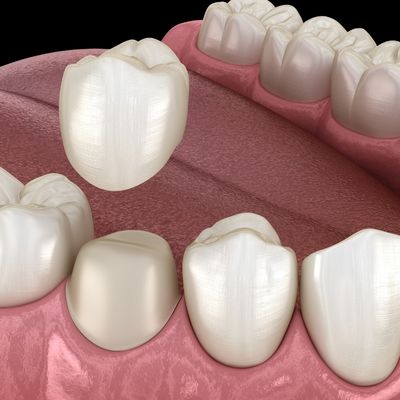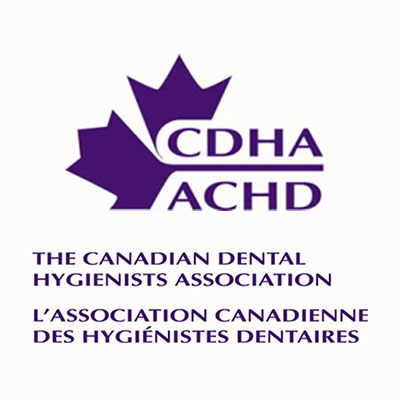
 |
While this scenario might sound a bit dramatic, unfortunately, many patients find themselves in an urgent or even emergency situation and may require treatment with a dental crown. And, many of you reading this may already have had a dental crown (or crowns) placed. However, some patients are reluctant to proceed when the recommended treatment is a crown for a badly decayed or broken tooth, or one that is very heavily filled. So here is some basic information about dental crowns as well as how Kaydental can support you if you have financial concerns about this treatment.
A crown (also called 'a cap') is a "made to measure" covering that sits over the top of a tooth. Crowns protect, cover, seal and strengthen teeth. When a filling just won't do the job, we often recommend treating the tooth with a dental crown.
The crown is made to duplicate the same anatomy (shape, size, contours and colour) as the tooth that it will be covering, so each crown is individually fabricated in a dental lab. Because crowns duplicate the anatomy of a natural tooth, they also function as a natural tooth would. Kaydental works closely with the dental laboratory to ensure the accuracy of the fabricated crown.
Crowns are typically gold covered by porcelain, the colour of which is matched as closely as possible to other natural teeth in your mouth. These materials together provide the crown with its strength.
Once permanently cemented in place, the crown looks, feels and functions as a natural tooth and should be cared for the same as natural teeth (brushing and flossing). Crowns are strong and generally last for about 10 years or longer if you take good care of them. Brush and floss your crown, just as you clean your natural teeth.
Large old fillings - Teeth that have large, old fillings often develop decay (cavities) around those fillings. If the fillings and decay use up too much of the natural tooth structure, the tooth becomes weak and can fracture. It is important to crown a tooth that has been structurally weakened to prevent further damage such as cracking or breaking and possible loss of the tooth. If the fracture is too deep, root canal therapy may be required before the tooth is crowned.
Severe decay – If a tooth has decay so deep and large that a filling will not stay, or if the tooth structure is weakened, a crown can often save the tooth and avoid the need to remove the tooth.
Sensitive teeth – Teeth that are very sensitive, either from a lot of 'wear', or from receded gums, sometimes require crowns to seal and protect the teeth from further hot and cold sensitivity.
Root Canal Therapy – A tooth that has undergone root canal therapy will need a crown to properly seal and protect the tooth from fracturing.
 |
If a crown has been recommended for you, we encourage you to contact our office to discuss your individual treatment needs and the estimated costs. The more you know about your dental options, the more educated your decisions about your oral health can be!
Sources:
At our North York dental office, our fees are based on the most current Ontario Dental Association fee guides.
If you have any questions about the costs of any of our dental services, please contact us so one of our staff members can clarify and guide you through the price determinations.
You can find our patient referral form here. We provide dental care for the whole family, including children's dentistry and emergency dental care.




